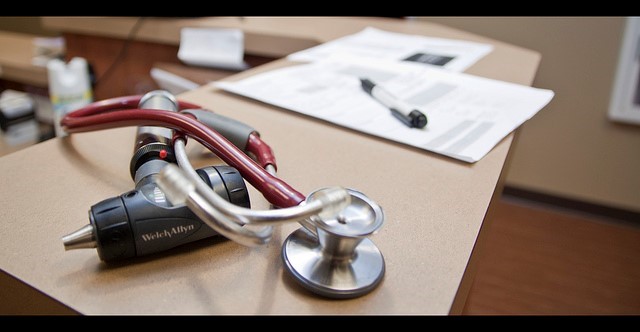Article by Philippa Watkins, National Assembly for Wales Research Service
There is a strong policy drive in Wales to re-focus healthcare provision towards community-based primary care services rather than hospital (secondary care) settings. Where historically there was a main focus on treatment of illness, there is now much greater emphasis on the NHS’ role in prevention and early intervention. [caption id="attachment_3591" align="alignright" width="300"] Image from Flickr by Connor Tarter. Licensed under Creative Commons[/caption] In its new plan for a primary care service for Wales up to 2018 (November 2014), the Welsh Government sets out how its long-held ambition to make primary care ‘the engine room’ of the Welsh NHS will be delivered. Key elements of the plan include:
Image from Flickr by Connor Tarter. Licensed under Creative Commons[/caption] In its new plan for a primary care service for Wales up to 2018 (November 2014), the Welsh Government sets out how its long-held ambition to make primary care ‘the engine room’ of the Welsh NHS will be delivered. Key elements of the plan include:
- A relationship of ‘co-production’ between patients and professionals.
- A remodelled, multidisciplinary workforce.
- The further development of primary care ‘clusters’ (groups of GP practices working together with other community-based professionals) to support local planning and delivery of services.
- Greater use of ICT to improve access to healthcare.
- Tackling the inverse care law (where people in more disadvantaged communities are less likely to have access to primary care, despite being more likely to have greater need) and ensuring equitable access to primary care, including increasing access to Welsh language services.
- Strengthened leadership, including the appointment of a national professional lead for primary care.
Workforce The Assembly’s Health and Social Care Committee recently highlighted concerns about the sustainability of the GP workforce; evidence heard by the Committee described ongoing difficulties in recruiting and retaining GPs coupled with an increasing demand for services. The Welsh Government’s primary care plan calls for a remodelled workforce. GPs will continue to play a pivotal role, but this will increasingly be one of providing leadership to multi-disciplinary teams. The Health Minister stated:
As we redesign the workforce in Wales, we must be guided by the principles of prudent healthcare. No GP should routinely be undertaking any activity which could just as appropriately be undertaken by an advanced practice nurse, a clinical pharmacist or an advanced practitioner paramedic.
New or extended roles are envisaged, as well as increased opportunities for advanced practice. The primary care plan describes a person-centred approach, in which services are planned and coordinated in response to an individual’s needs, rather than necessarily following a more traditional, disease-specific pathway of care. It’s clear that providing more care closer to home will require effective joined-up working between health professionals and partners in social care and the third sector, particularly given the ageing population and the need to manage more patients with long-term conditions and multi-morbidity. This need for an integrated health and social care system was emphasised in the September 2014 Mid Wales Healthcare Study, which prescribed a future model for the provision of healthcare services in mid Wales. In April 2015, a review of investment in health professional education in Wales was published for consultation. This makes a number of recommendations to support delivery of the future NHS workforce, including a refreshed strategic vision for NHS Wales, based on the prudent healthcare agenda, and the establishment of a single body for workforce planning, development, and education commissioning. The Welsh Government’s national primary care workforce plan, currently being developed, will take the review’s recommendations into account. It will encompass a wide range of community-based professionals, and aims to drive forward the integration of health and social care and support the delivery of ‘a seamless local service’. Funding The primary care plan highlights that investment in primary care has increased steadily over the last decade or so. However, whilst expenditure may have risen (on general practice for example), this spend actually represented a decrease as a proportion of the total NHS budget, a trend seen across the UK. Concerns have been expressed that such a period of underinvestment cannot support the shift of care from secondary to primary care settings. In January 2015, the Minister announced a £10 million primary care fund in 2015-16. £6 million of this has been allocated to the 64 primary care clusters across Wales to plan and deliver local priorities, with the remainder going to strategic ‘pathfinder schemes’ and one-off projects. In a recent update on Together for Health, the Health Minister states that a further £50m of funding for the NHS in 2015-16 will directly support the delivery of priorities identified in the primary care plan, including improved population health, reduced inequalities in health and improved access to a preventative and integrated health and social care system. The Minister also states that the Welsh Government has ‘redoubled efforts’ over the last year to take a preventative, primary and community care-led approach, which is integrated with social care to deliver as much care as possible closer to home. It remains to be seen how far these efforts will go towards achieving the Welsh Government’s aim of transforming the way health services are provided in Wales - making primary care the engine room of the NHS.






